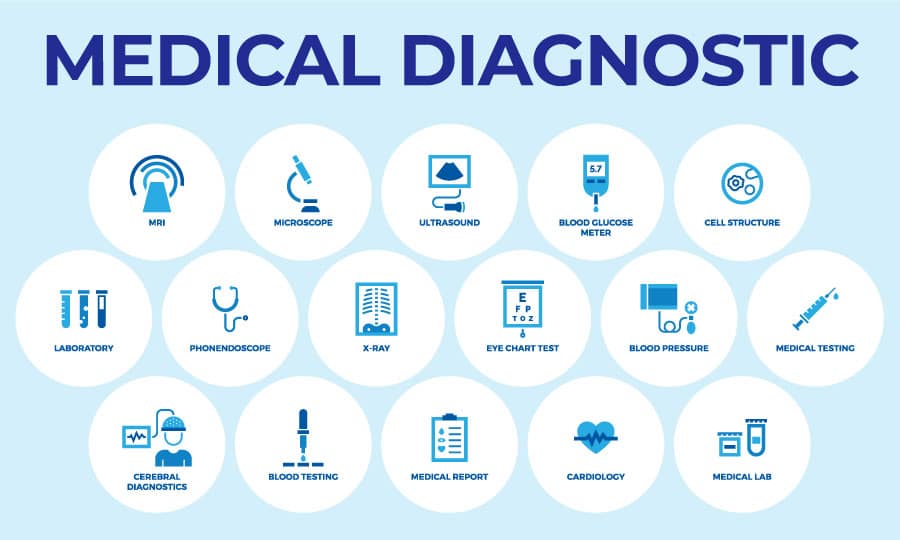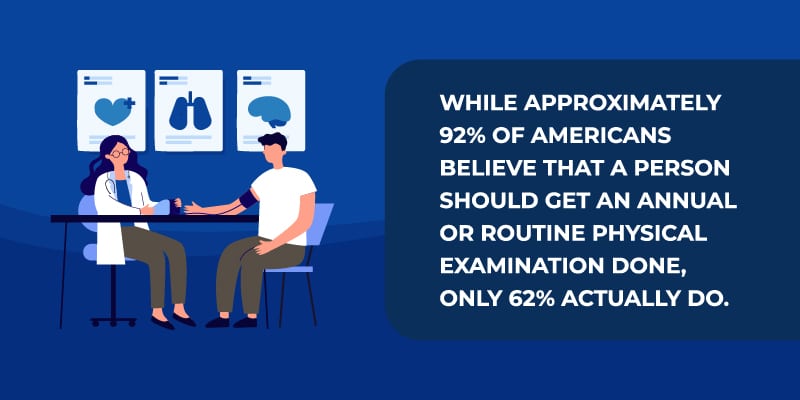
Comprehensive Medical Evaluation at J. Flowers Health Institute
A comprehensive medical evaluation from J. Flowers Health Institute can help you get the care and support you need for your symptoms.
Table of Contents
Reach Out to Learn More
Art Therapy
Dive Deep Into Your Health With J. Flowers Health Institute
Experience the assurance of complete health understanding with our comprehensive medical evaluation. At J. Flowers Health Institute, Dr. James S. Flowers and our proficient team take a holistic approach to understanding all aspects of your health.
Uncover and Understand Your Health Status
A routine comprehensive medical evaluation is instrumental in keeping an eye on your health. Depending on your age and personal circumstances, we recommend these evaluations be conducted annually or biannually.
What Types of Doctors Are Involved In a Comprehensive Medical Evaluation?
Then, the patient will meet with a physician who will conduct the remainder of the physical exams. The doctor might then refer the patient to other specialists or order specific screenings or testing.
Share This Article
Categories
Top Blogs
Recent Post
How Is a Comprehensive Medical Evaluation Performed?
Initial Consultation
Test and Screenings
Depending on your age and health history, you’ll be asked to undergo certain tests and screenings. These may include lab tests, X-rays, scans, or other forms of imaging.
You may also need to complete lifestyle assessments, such as physical activity tracking or dietary evaluations.
Follow-Up Consultation

What Does a Standard Comprehensive Medical Evaluation Include?
Updated Medical History
The cornerstone of every comprehensive medical evaluation is an updated medical history. This involves a detailed discussion about your past and present health conditions. You’ll be asked about any illnesses or surgeries you’ve had, medications you’re taking, and any allergies you may have.
Family health history is also important, as some health conditions can run in families. This information helps the doctor understand your health background and any potential health risks.
Vital Signs Checks
Vital signs are basic measurements of your body’s basic functions. During a comprehensive medical evaluation, your doctor will check four key vital signs: temperature, pulse, respiration rate, and blood pressure.
Visual Exam
This is when the doctor looks at your body for any signs of health issues. They will typically examine your:1
- Skin
- Eyes
- Head
- Chest
- Abdomen
- Elbows and joints
- Musculoskeletal system
- Nervous system functions
Physical Exam
The physical exam is the hands-on part of the comprehensive medical evaluation. The doctor will listen to your heart and lungs, check your abdomen for any unusual sounds or tenderness, and examine other parts of your body.
They may also measure your height, weight, and blood pressure. These checks help the doctor detect any abnormalities that could suggest a health issue.
Laboratory Tests
Laboratory tests involve examining samples of blood, urine, or other body tissues. These tests can help identify health conditions that might not be found with a physical exam, such as a thyroid issue.
For example, a blood test can show if you have high cholesterol or diabetes. A urine test can reveal problems such as a urinary tract infection or kidney disease.
Imaging Studies
Imaging studies create pictures of the inside of your body. These can include X-rays, CT scans, and MRIs. These images can help your doctor see if there’s anything unusual in your organs, bones, or tissues.
For example, an X-ray can show if you have a broken bone, and a CT scan can reveal tumors or other abnormalities.

Screening Tests
For Women
Mammogram
Pap Smear
Pelvic Exam
Other Tests
These include blood tests to test for high cholesterol or diabetes, a bone density scan to check for osteoporosis, and an ultrasound to check for ovarian cancer.
For Men
- Prostate Cancer Screening: Prostate screening can involve a blood test called a prostate-specific antigen (PSA) test, and/or a rectal exam. The PSA test measures the level of PSA in your blood, and high levels can be a sign of cancer. The rectal exam involves the doctor using a gloved finger to feel the prostate for any bumps or hard areas that might suggest cancer. Starting at the age of 50, prostate cancer screening might be necessary for some men.
- Testicular Exam: A testicular exam checks for lumps, changes in size, or irregularities in the testicles, which can be signs of testicular cancer. Testicular cancer is most common in men between the ages of 15 and 34.
- Cholesterol Test: A cholesterol test measures the levels of different types of cholesterol in your blood. High levels of certain types of cholesterol can increase your risk of heart disease. Men should begin regular cholesterol checks at the age of 35. Your doctor may recommend more frequent tests if you are at a higher risk of heart disease due to factors such as age, smoking, or family history.
For Both Men and Women
Colon Cancer Screening
Lung Cancer Screening
Lung cancer screening tests look for signs of the disease in people who are at higher risk, especially due to age and smoking history. These tests usually include a low-dose CT scan or an X-ray.
Depression
Screening for symptoms of depression is also recommended in a comprehensive medical evaluation. This is due to the fact that it is estimated that 1 in 5 American adults experience a mental health issue each year.2
Depression screening typically involves answering a series of questions that can help identify symptoms of depression. If you’re feeling down, hopeless, or not enjoying the activities that you used to, it might be a good idea to talk to your doctor about a depression screening.
Diabetes
Vaccinations
STI Screening

How To Prepare for a Comprehensive Medical Evaluation
Making a List of Your Symptoms
If you’re experiencing any symptoms, write them down before your appointment. Try to be as detailed as possible. Include when the symptoms started, what makes them better or worse, and how they impact your daily life.
If You’re Taking Any Medications
Bring a list of any medications you are currently taking, including the dosage and frequency. This includes prescription medications, over-the-counter drugs, supplements, vitamins, or herbs.
Gathering Medical Records
If possible, bring your medical records from other doctors that you have seen in the past. This will help provide your doctor with an overall picture of your health.
This can include details about any allergies, lab tests, or other information.
Asking Questions
What Are the Benefits of Having a Comprehensive Medical Evaluation?
Look Deeper Into the Root Cause of Multiple Issues
Sometimes, health issues can be interconnected. For example, stress can lead to sleep problems, which can then affect your physical health.
A comprehensive medical evaluation can help identify these connections and provide a deeper understanding of your health. This can help your doctor develop a treatment plan that addresses the root cause of your health issues, rather than just treating the symptoms.
Build a Relationship With a Doctor
Another benefit of having a complete medical examination is being able to create a relationship with a physician. Because doctor’s appointments are often brief, a person might not feel like they have the opportunity for their healthcare provider to get the full picture of their health.
It is important for doctors to know as much as they can about their patient, even if it’s small details about what impacts their daily life (such as stressors). Not all medications or treatments are right for everyone, so it is important to have healthcare that is tailored to a person’s individual needs.
A comprehensive medical evaluation gives a person the opportunity and time to talk to their doctor about concerns and create a plan for how to make changes. Having a good relationship with a physician makes it easier to discuss sensitive health concerns or fears.
Identify Health Issues
A comprehensive medical evaluation helps a doctor identify any potential problems causing negative symptoms.
Routine check-ups do not involve the same level of thoroughness in testing and examination as a comprehensive evaluation does, so problems that might be missed during check-ups can be identified in a comprehensive evaluation.
Having complete testing done allows a person to know for certain that they are in good health, and it allows them to identify and tackle potential health issues.
Prevent Health Issues
A major benefit of having a complete physical examination done is to help prevent issues for which there is an increased risk. It can give more information on which problems could be avoided by changing lifestyle habits or by taking medications.

How Often Should a Person Have a Complete Physical Examination?
Routine Examinations
Personalized Approach

Discover Your Path to Optimal Health with J. Flowers Health Institute
How Can We Help?
The end result is a detailed report and action plan tailored to your needs, outlining how to tackle your health issues and optimize your life. We’ll provide you with the knowledge and resources to take control of your health and start achieving results.
Get In Touch Today
Resources
- https://www.beaumont.org/services/find-a-beaumont-primary-care-doctor/physical-exams
- https://www.emedicinehealth.com/checkup/article_em.htm#facts_about_and_definition_of_medical_checkups
- https://www.advisory.com/daily-briefing/2015/04/08/why-44-million-americans-continue-to-get-annual-physicals
- https://www.emedicinehealth.com/checkup/article_em.htm#facts_about_and_definition_of_medical_checkups









